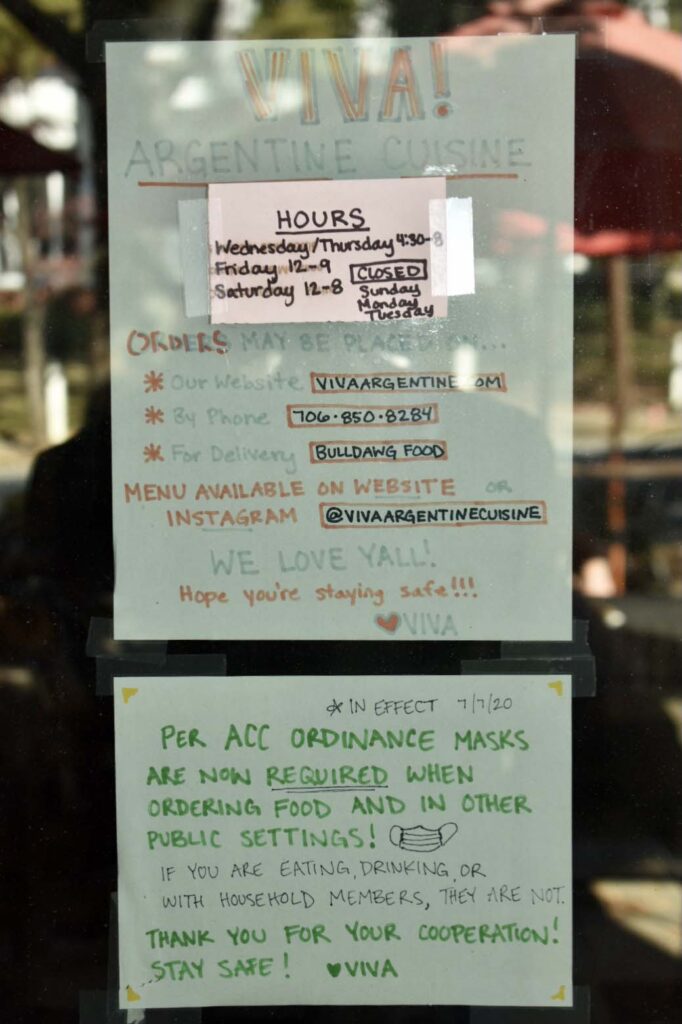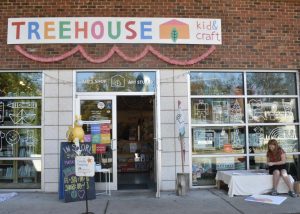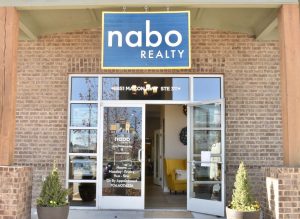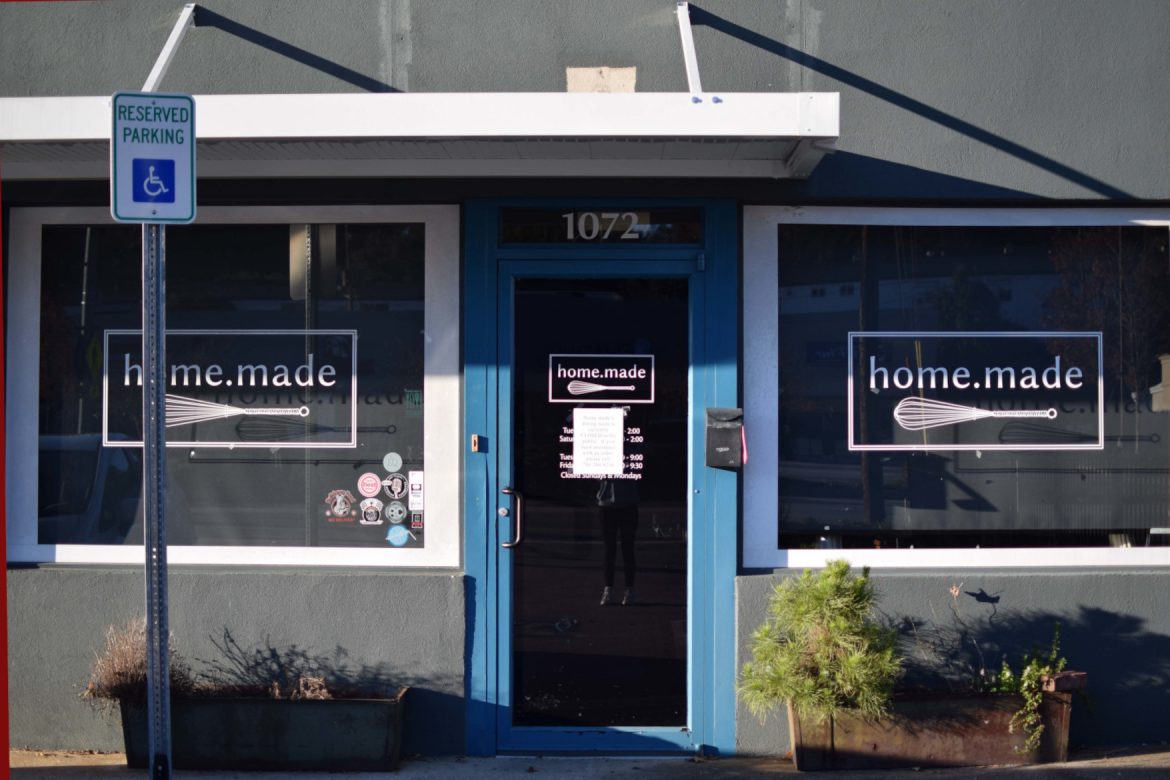Home.made, a local restaurant on Baxter Street, is closed until owner Mimi Maumus finds a safe way to operate without risking her customers’ health. Maumus has said that until the Food and Drug Administration or Centers for Disease Control and Prevention give her bona fide guidelines for how to safely open her restaurant, home.made will remain closed. “Trying to have a dining room experience where we’re out asking people to put their masks back up when they’re not actively eating or drinking (or) when they’re having conversations, that sort of thing, I would feel comfortable with that. But I think that because it’s not mandated and because people have such different opinions about it, it would be impossible for us to enforce,” Maumus said. Photo by Luna Reichert
Since COVID-19 began impacting the U.S. in March with a temporary shutdown in the spring, Athens business owners have persevered in their struggle to retain enough customers and income to continue operating, combating challenges with tools, such as curbside pickups and social media promotion.
Viva Argentine Cuisine co-Owner and operator Gabriela Lindsey immediately closed her restaurant in March when COVID-19 cases were first reported in Athens, and reopened again after about six weeks with limited staff.
“It’s been tough (since the pandemic hit Athens). I think we were one of the first restaurants to close,” Lindsey said. “We were on an upward motion (before the pandemic hit). We had just gotten a really great article in a national magazine, “Southern Living”, and “Athens Magazine” was gonna write upon us. So it was tough to be on the upward motion and then everything closes down.”

Viva Argentine Cuisine has a sign posted on the inside window of the restaurant. The sign depicts the regulations the restaurant inputted since the beginning of the pandemic in March of 2020. “We started out just reaching to the staff and seeing if the staff wanted to reopen, we weren’t set up for online ordering at all. So that’s also something that we had to figure out,” Lindsey said. “We have that in place now. So it started out back really slow and pretty deliberate and just trying to make sure that we’re doing everything as safely as possible.” Photo by Chloe Sears
During the shut down of her local arts and crafts store, Treehouse Kid and Craft founder Kristen Bach brainstormed ways to maintain business without the usual face-to-face interactions of the community it relies on.
“We opened our doors back up (in September). We were closed for six months, which greatly impacted our business because we were only doing curbside pick-up and online orders,” Bach said.
After a pause in operation, Bach remains hopeful that business will eventually return to normal.
“I think we’ll have some residual economic disaster for sure, but I feel really grateful that I’m in an industry that isn’t a restaurant right now, where I could only function at a 25% capacity. It’s hard for me to feel bad for myself or (the business) when we have the capabilities that we do,” Bach said.
When the effort to stay open began to cost more than the income being generated, home.made, a southern food restaurant, Owner Mimi Maumus made the decision to close her restaurant. Due to the easy transmission of COVID-19 in restaurants, Maumus believed pausing operation was a safer option for everyone.
“The business, the overhead and the infrastructure that we have is there for restaurant catering and packaged foods. When catering was no longer an option, and dining-in wasn’t an option, the amount of income we were able to generate wasn’t
enough,” Maumus said.
Until there are clear, detailed health guidelines to help restaurant owners resume business safely inside, Maumus plans to keep home.made closed.
“(The Food and Drug Administration and the Centers for Disease Control and Prevention) didn’t have any guidelines (for reopening), but that it was up to the business owner to determine what protective barrier would guard against the spread of COVID-19,” Maumus said. “I want to run a business that’s there to take care of people, not expose them to something that could be life-threatening for them or for anyone else.”
In contrast to the struggles for restaurants, for non-restaurant businesses such as Nabo Realty, a real estate company, the pandemic has not interfered with success.
“A lot of people didn’t put their plans (on hold),” Nabo Realty co-Founder, Chief Financial Officer Rachel Allen and Director of Marketing said. “If (a) home was already not working ideally, a lot of people were feeling that and going ahead to make the move to a bigger house, or a house that has the kind of yard or location they want.”
Unable to conduct face-to-face interactions, Nabo moved the realty business to an online platform and plans to continue communicating in this way.

Treehouse Kid and Craft is a local children’s toy store The store has come up with many ways to keep its community involved during the shutdown of the pandemic, including curbside pick-up, virtual summer camps and care packages. “We were closed for six months, which greatly impacted our business just because we were only doing curbside pick-up and online orders,” Treehouse Kid and Craft founder Kristen Bach said. “Also, we had a full summer that was packed with summer campers and we couldn’t do camps, so we did all virtual camps, but you know, a lot of summer campers opted out.” Photo by Chloe Sears
“Luckily, (real estate is) an industry we mostly do outside of the confines of a physical office space, and clients have been great about being safe and flexible with viewing houses (and) touring homes,” Allen said. “We’ve done FaceTime tours and that kind of thing, creating video tours and then maintaining precautions when touring a home.”
Revival Yarns also moved business online to avoid a decline in sales without in-person interactions.
“I think people know that it’s important to keep shopping here, even though they can’t come in the store,” co-Owner of Revival Yarns Cara Cannon said. “(Our co-Owner) Lindsay did a lot of work on (the website) — really quickly got the website up and the online sales. We wouldn’t have survived without that.”
Revival Yarn’s decline in income created a need for loans and grants to keep the store afloat.
“At the very beginning of the pandemic, we got a loan from the Athens Downtown Development Authority, (another) small loan that was also really helpful, and then we just got another one,” Cannon said. “The Joint Development Authority of Athens-Clarke County and Winterville did small business loans, too, so we were able to get that grant. Those have helped us hang in there.”
“Right now, we’re holding on by our fingernails and hoping everyone’s working hard (to make a vaccine).”
— Ann Woodruff,
Canopy Studio Outreach and Children’s Programming Coordinator
Canopy Studio, an aerial dance studio that offers child and adult classes, has also received grants and government-issued funding during the pandemic that has helped the company stay afloat.
“We did get a (Paycheck Protection Program) loan, and we fully expect to have that rolled into the grant so that it’s forgiven, but that only covered us at the beginning of the pandemic. That money’s gone. For right now, we’re holding on by our fingernails and hoping everyone’s working hard (to make a vaccine),” Canopy Studio Outreach and Children’s Programming Coordinator Ann Woodruff said.
Loans and grants aside, as the fight against COVID-19 continues, Canopy Studio is struggling to maintain enough business to keep from pulling more money out of its savings.
“Despite having classes and shows, and doing our very best here, we’re losing money every single month,” Woodruff said. “We’re being careful, but it’s still hard each month, knowing that we’re going to have to pull out of savings yet again.”

Nabo Realty is a real estate company with a focus on the Athens Regional Area. The company mostly operates outside of an office space and was relatively unaffected by the COVID-19. “(Business) seems to have stayed pretty steady and pretty strong, so we’ve been very grateful for that. And as far as the local office, we’re very grateful to have all of our agents who work at Nabo and the staff that we employ have been able to safely work at home until more recently, when people have been coming into the office and maintaining safety measures there,” Chief Financial Officer and Director of Marketing Rachel Allen said. Photo by Chloe Sears
The overall economic impact of COVID-19 on local Athens businesses has been difficult, but many companies have endured that with positive consequences to pair with the destruction.
“Financially, (the pandemic) has been devastating, but I think in other ways we have really benefited. Idea wise we’ve come up with new strategies and organizations, and we’ve thought of some different ways to connect with our community and kind of put ourselves out there,” Bach said.
Despite the economic struggles, business owners remain hopeful that one day a COVID-19 vaccine will help their companies return to normal.
“Everything’s so unpredictable right now, it’s hard to know when (business will return to normal). It’s hard to know when we’ll feel comfortable going back to normal. I think the vaccine is the most promising thing, and the hope that that’s out before too long, and people get it,” Cannon said.
In addition to the $1.6 million of federal funds distributed by the Athens-Clarke County government through the Coronavirus Aid, Relief, and Economic Security Act, community support of Athens businesses will help keep the local economy afloat as it continues to be impacted by COVID-19.
“When you order from Amazon or multinational companies, that’s helping somebody but it’s not helping to the extent of when you order a pound of coffee from Jittery Joe’s or when you order a book through (Avid Bookshop),” Athens Clarke-County Mayor Kelly Girtz said. “When you spend money on business owned in your town, you’re keeping those dollars in that town and those dollars circulated benefit us all.”
More from Chloe Sears
Package by Micah Shannon
